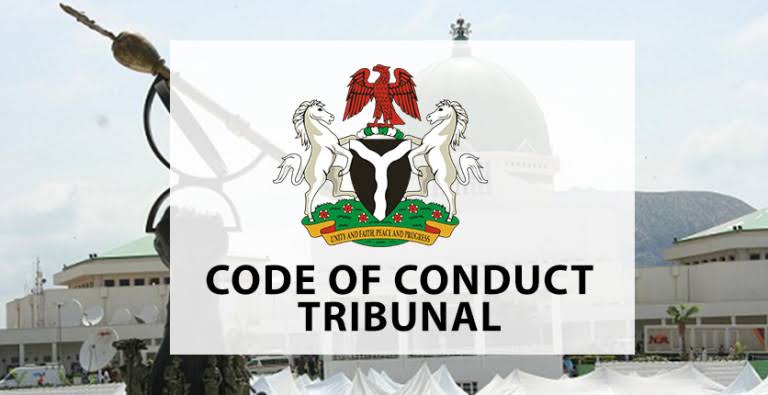The Code of Conduct Tribunal (CCT) is in a confused state as embattled chairman, Danladi Umar, and the newly appointed chairman, Mainasara Kogo, are both laying claim to its leadership.
According to reports, both men have officially visited the tribunal and held discussions with its staff without any clear directive on who is in charge.
President Bola Ahmed Tinubu had on July 13 appointed Kogo as the new chairman of the CCT, the same day he announced Omolola Oloworaran as the Director-General of the National Pension Commission (PenCom).
Although tribunal staff have raised concerns about the lull in operations since the controversy over Umar’s removal began, corruption cases involving public servants are still proceeding, with several charges listed for trial or arraignment.
Senior staff of the tribunal, who spoke to newsmen, said they are confused about who to work with as both men have spoken with them.
“We are civil servants and we believe we can work with anyone that comes,” a staff member said.
“We have not seen any letter to the effect of these changes. We believe there is a procedure for the removal and appointment of a new chairman of the CCT. We know that the president and the two arms of government have made pronouncements, but we don’t know if invisible hands are working on these. But we know there is a process,” he added.
One official noted that the proper process involves the appointee going through screening by the Federal Judicial Service Commission (FJSC), which then recommends the candidate to the National Judicial Council (NJC) for approval before forwarding the nomination to the Senate for confirmation.
The senior official revealed that the situation has created a backlog of unattended files due to the lack of clarity on leadership.
“He came today and left, and the entire judiciary is now on holiday, so we have taken the liberty to adjourn all the outstanding cases to January,” the official said.
Following the presidential announcement removing Umar, both the Senate and the House of Representatives, in separate plenaries on November 20 and 26, endorsed his removal as CCT chairman on allegations of misconduct and corruption.
Both resolutions were hinged on Section 17 (3) Part 1, Fifth Schedule of the Nigerian Constitution and Section 22 (3) of the Code of Conduct Bureau and Tribunal Act 2004, which states: “A person holding the office of chairman or member of the code of conduct tribunal shall not be removed from his office or appointment by the president except upon an address supported by 2/3rd majority of each house of the national assembly praying that he be so removed for inability to discharge the functions of the office in question (whether arising from infirmity of mind or body) or for misconduct or for contravention of this code.”
The legal dispute over Umar’s tenure is now before a Federal High Court in Abuja, where groups including the Community Rescue Initiative, Toro Concerned Citizens, and Relief Foundation are challenging the resolutions.
They contended that the Senate and House concurrence was “null, void, unconstitutional, and of no effect whatsoever.”
Reacting to the situation, lawyers have questioned the legality of both Umar’s removal and Kogo’s appointment.
Sunusi Musa (SAN) argued that Umar’s removal did not follow constitutional provisions requiring a resolution by two-thirds of both houses of the National Assembly.
He further questioned Kogo’s authority, stating; “Where is he getting the powers to visit the tribunal if he has not been appointed by the NJC and has not been inaugurated as the chairman of the tribunal?”
Similarly, Dayo Akinlaja (SAN) said that without a formal letter of appointment, Kogo’s position is not binding.
In his submission, Haroun Eze, Esq highlighted irregularities in the procedure leading to Umar’s removal, stating “The removal did not accord with the procedure for the removal of the CCT chairman and that is why the National Assembly provided that aspect by their resolutions for the removal.”
He further questioned whether the National Assembly’s resolution aligned with Section 22 of the Code of Conduct Tribunal Act, adding that the Attorney General of the Federation should have established a case of misconduct against Umar before passing such resolutions.
The situation remains unresolved, leaving staff and observers in limbo as both parties continue to claim the chairmanship of the CCT.
Linda Ikeji











